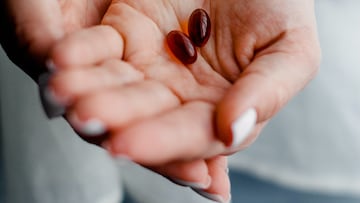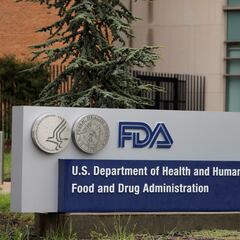The best vitamin for the brain, according to a Harvard expert
In an interview with the BBC, Dr. Naidoo has revealed the best vitamin to keep our brains young, healthy and in good condition.

The vitamins are a group of substances that are necessary for normal cell function, growth and development. The importance of vitamins is directly related to health, and it has been shown that the appearance of certain diseases is due to a lack of certain vitamins, such as scurvy, caused by a lack of Vitamin C or rickets, caused by Vitamin D deficiency. Vitamins can help prevent some chronic diseases.
“There are 13 essential vitamins for the normal functioning, growth and development of cells,” details the National Library of Medicine of the United States. Naturally, these are found in food, so it is recommended people know what is good for us to be putting in our mouths each day.
Why is vitamin B important for us?
The author of This is your brain on food, Dr. Naidoo, stated in an interview with the BBC that a vital vitamin is B, because it is key to keeping our brain young and healthy. “There are 8 types of B vitamins,” explained Naidoo.
“One of my favorites, and the one I talk about all the time, is vitamin B-9, which is folic acid,” continues this doctor, who argues that B vitamins have different benefits beyond the brain, but they all have some element that helps it.
A great infographic with functions and food sources for all 8 B vitamins. #vitamin #vitaminB #nutrients #fruits #Nutrition #health #healthy #HealthyFood #healthylifestyle #healthyeating #Eating #food #Diet #MedEd #MedTwitter #medstudenttwitter #TipsForNewDocs pic.twitter.com/AwgpQhEDbe
— Nutrition Science (@NutrioSci) October 10, 2022
Benefits of B vitamins
B vitamins help the body’s processes to extract energy from the food consumed. They also help form red blood cells and contribute to healthy immune function, as well as supporting other important processes in the body.
They are water-soluble, so can be lost in cooking water and, if taken in excess, they are eliminated in the urine. These can be obtained from proteins such as fish, chicken, beef, eggs and dairy products. Green leafy vegetables, beans and beans also have these types of vitamins .
Recommended daily vitamin B allowance
Related stories
After being asked about the recommended daily amount of vitamin B, the doctor recommends that a person should “include” foods in a healthy and balanced diet. “Don’t just eat beans, don’t just eat green leafy vegetables, because then you’ll lose the other seven B vitamins by ignoring them,” he warns.
For this reason, he concludes that it is important to know what should be consumed within the recommended amounts. “When it comes to vitamins, believing that eating or drinking something extra will help you more is usually a myth,” he concluded.


